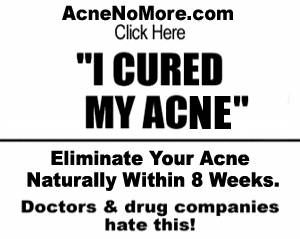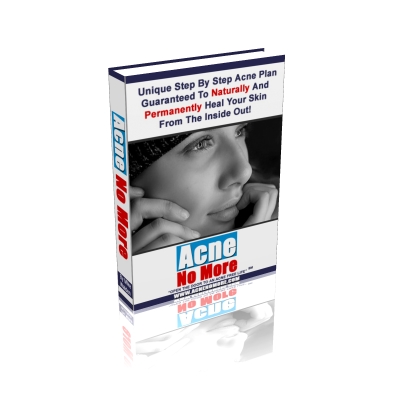Acne, a common skin condition, can be quite a frustrating ordeal. During my teenage years, I personally struggled with acne, dealing with blackheads, whiteheads, and various other forms. In this article, we will debunk some myths surrounding acne and provide useful tips for effectively halting its occurrence.
Debunking Acne Myths
Myth 1: Acne is caused by a poor diet
One prevalent myth about acne is that it is solely caused by a poor diet, particularly junk food. While it is true that diet plays a role in overall skin health, there is limited scientific evidence linking specific foods to acne. Personally, I enjoyed my fair share of junk food without experiencing a direct correlation between my diet and acne. It's important to understand that acne is a complex condition influenced by various factors, such as genetics, hormones, and skin care habits.
Visit: Dairy Products and Acne: What You Should Know
Myth 2: Chocolate causes acne
Another popular myth suggests that consuming chocolate leads to the development of acne. As a chocolate lover, this notion worried me. However, after conducting thorough research and examining medical reports, I discovered that chocolate consumption has no direct impact on acne formation. So, rest assured, you can savor your favorite chocolate treats without fearing a breakout.
Myth 3: Acne is caused by masturbation
There is a misconception that acne is associated with frequent masturbation. I, too, fell victim to this belief for a while. However, it became apparent that this was yet another unfounded myth. The presence or absence of acne is not determined by one's masturbation habits. It is essential to differentiate between myths and facts when seeking accurate information about acne causes.
Understanding Acne and Its Treatment
The role of dirt and pore blockage
One commonly believed theory is that acne occurs due to the accumulation of dirt on the face, which leads to blocked pores. However, if this were the case, we would expect acne to appear on other body parts that regularly come into contact with dirt. Surprisingly, my arms and legs, despite being exposed to dirt more often, remained mostly acne-free. Consequently, I spent significant time trying various soaps and anti-acne products, hoping to clear my skin. Unfortunately, these attempts yielded little to no results.
The impact of stress on acne
Stress is known to affect our overall well-being, and acne is no exception. During my acne journey, I discovered that excessive stress worsened the condition. The more I obsessed over my acne, the more it seemed to persist. Adopting a fatalistic attitude, I eventually decided to stop fixating on my skin imperfections. Miraculously, as I progressed through adolescence, my acne gradually faded away. Although faint scars serve as reminders of that period, my skin has significantly improved.
Effective Strategies for Preventing Acne
While individual experiences with acne may vary, implementing the following strategies can help minimize its occurrence and promote healthier skin:
1. Maintain a consistent skincare routine
Establishing a regular skincare routine is crucial for managing acne. Cleanse your face twice a day with a gentle cleanser to remove excess oil and impurities. Avoid harsh scrubbing, as it can irritate the skin and worsen acne. Additionally, incorporate non-comedogenic moisturizers to keep your skin hydrated without clogging pores.
2. Avoid excessive touching of the face
Touching your face with unwashed hands transfers bacteria and oils, potentially leading to breakouts. Minimize touching your face throughout the day to reduce the risk of acne-causing bacteria entering your pores.
3. Follow a balanced diet
While diet alone may not be the primary cause of acne, maintaining a balanced and nutritious diet is essential for overall skin health. Incorporate plenty of fruits, vegetables, lean proteins, and whole grains into your meals. Stay hydrated by drinking an adequate amount of water daily.
4. Manage stress levels
Stress can trigger hormonal imbalances, leading to increased oil production and potential acne flare-ups. Practice stress-management techniques such as exercise, meditation, or engaging in hobbies you enjoy. Prioritizing self-care can significantly reduce stress levels and promote healthier skin.
Acne can be a distressing condition, but it's important to separate fact from fiction when it comes to its causes and treatment. By debunking common myths surrounding acne, understanding its underlying factors, and implementing effective prevention strategies, you can take control of your skin health. Remember, everyone's journey with acne is unique, and seeking professional guidance from a dermatologist can provide personalized recommendations for your specific needs. Embrace your skin, follow a healthy lifestyle, and take proactive steps to achieve clearer, acne-free skin.
STOP GETTING RIPPED OFF! LEARN THE SHOCKING TRUTH ABOUT ACNE, DRUGS, CREAMS, AND THE ONLY PATH TO LASTING ACNE FREEDOM... To get the FACTS on exactly how to eliminate your Acne from the root 100% naturally and permanently and achieve LASTING clear skin without spending your hard-earned money on drugs and over-the-counter remedies...Click Here --> [AcneNoMore.com]


















0 Comments